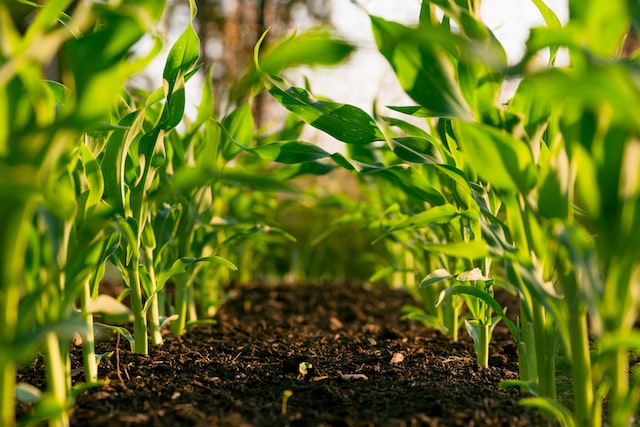It’s hard to walk into a grocery store and not be bombarded by brands competing for the most environmentally friendly product. The problem is, as consumers, for the most part, we don’t actually understand what that entails. Sure, we know enough to understand that global warming is a real and present danger, and that our carbon footprint must change or serious consequences will continue to arise. We’re even taking small, individual steps in our personal lives to do better for our planet.
But as the crisis continues, we’ve started to realize that, while admirable, things like growing our own home gardens just won’t cut it when it comes to making any real impact on environmental health overall. We want to be optimistic, cheerfully saying things like, “every little bit helps!”, and while that’s true to an extent, it’s just not enough. So we’ve started to look to bigger companies, holding them accountable for their growing practices, because theirs are the footprints with real impact. But what exactly are we asking of them? Do we even know?

A recent study conducted by Morning Consult shows that sadly, we’re quite a bit more ignorant as consumers than we should be. It shouldn’t come as a surprise that one of the study’s biggest finds revealed that knowledge of sustainability doesn’t often equate to understanding. This appears to be a theme in important issues for Americans, doesn’t it? We’ll go round and round all day debating, fighting, tearing each other to shreds about topics that matter immensely, when at the end of the day, most have no idea what the hell we’re talking about.
Morning Consult found that people love to toss around terms like “sustainable food,” “energy conservation,” “renewable resources,” and “greenwashing,” but can’t define what they mean in terms of what we’re putting in our grocery carts. We need to do better in terms of mending that disconnect.
There is hope, though. Even with the overall lack of understanding, the study revealed that consumers are truly concerned about environmental impact, even if it isn’t fully understood. And of the industries inquired about, people ranked food and beverage companies as the most important in terms of sustainability practices. Food waste created by restaurants, grocery stores, and manufacturers was among the top list of concerns. 64% of those polled had concerns about food manufacturing impact, and almost 70% expressed concern about industrial food waste.
Morning Consult paints a silver lining by concluding that the gap between awareness and knowledge of these issues will shrink as climate change and its impact continues to draw much-needed attention. While the progress is slow, it is happening, and at least that’s something to be glad of. They anticipate that brands with transparency and true effort behind their sustainability plans — including the reduction of their carbon footprint, energy consumption, waste practices, etc. — will thrive and stand head and shoulders above those brands that do not.
In the meantime, we should take this study as a wake-up call and check in with ourselves on our own knowledge of what we’re tossing into our grocery baskets. What is the company advertising, apart from a delicious product? Are they sourcing their ingredients and materials ethically? Check the packaging: is it recyclable? Do a quick google search on how they divert landfill waste, and what their alternative practices are.
Just taking the time to ask these simple questions can have a major impact on how these products are made and delivered to the public. And hey, you may learn something for all those heated debates we all love so much.
Editors' Recommendations
- Got the munchies? Good healthy snacks don’t have to be boring
- Turns out reheated French fries don’t have to be gross
- Make the smart choice: These are the most sustainable foods you can consume
- What To Know About Moroccan Cuisine, A Rich and Diverse Food Culture
- Glera Wine Grape Guide: One of the Most Popular Wine Grapes You Don’t Know About




